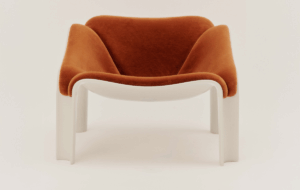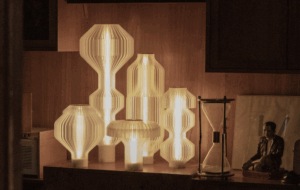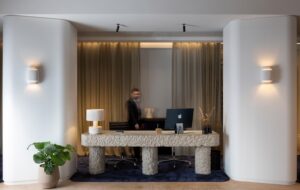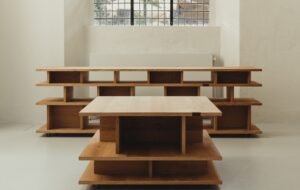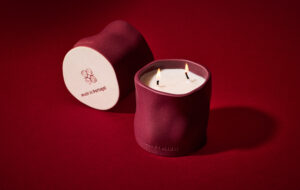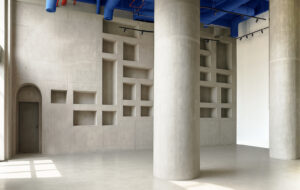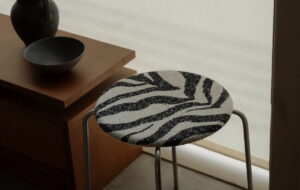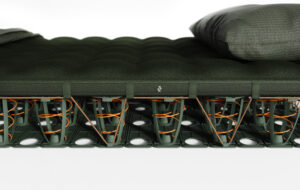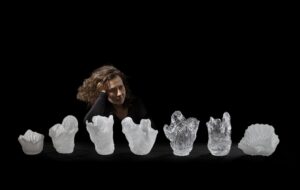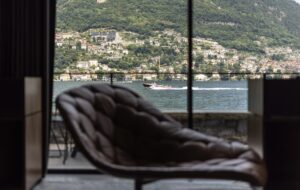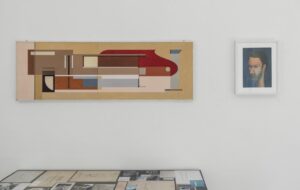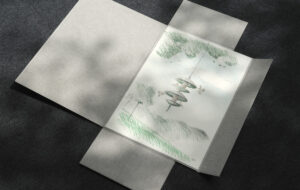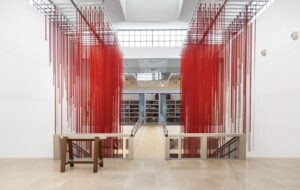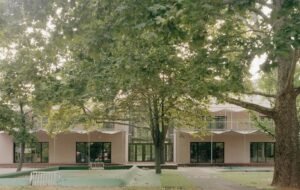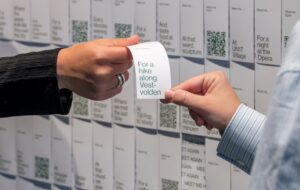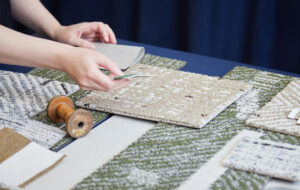High in the Swiss Alps, a traditional wooden chair chalet hotel opens up to reveal a relaxing midcentury-influenced interior that mixes local craftmanship with subtle design touches from its owner’s home country of Wales

Photography by Michael Sinclair
Words by Jessica-Christin Hametner
While the charming Alpine village of Adelboden offers plenty to see and do on a jaunt from Zurich or Basel, visitors have been hard-pressed to find lodging to match the charm of this Swiss gem tucked away in the Bernese Oberland.
The Brecon, the latest addition to this quaint ski resort, offers precisely the kind of hospitality and design-led experience the town was lacking. Founded by Wales native Grant Maunder, who has visited the area since his family took their first ski trip to the village 40 years ago, the hotel delivers quiet escapism, rather than the sort of loudness some parts of Switzerland are better known for.
‘With The Brecon, we want our guests to feel completely at ease, as if they are staying in a generous friend’s home rather than at a hotel,’ shares Maunder.
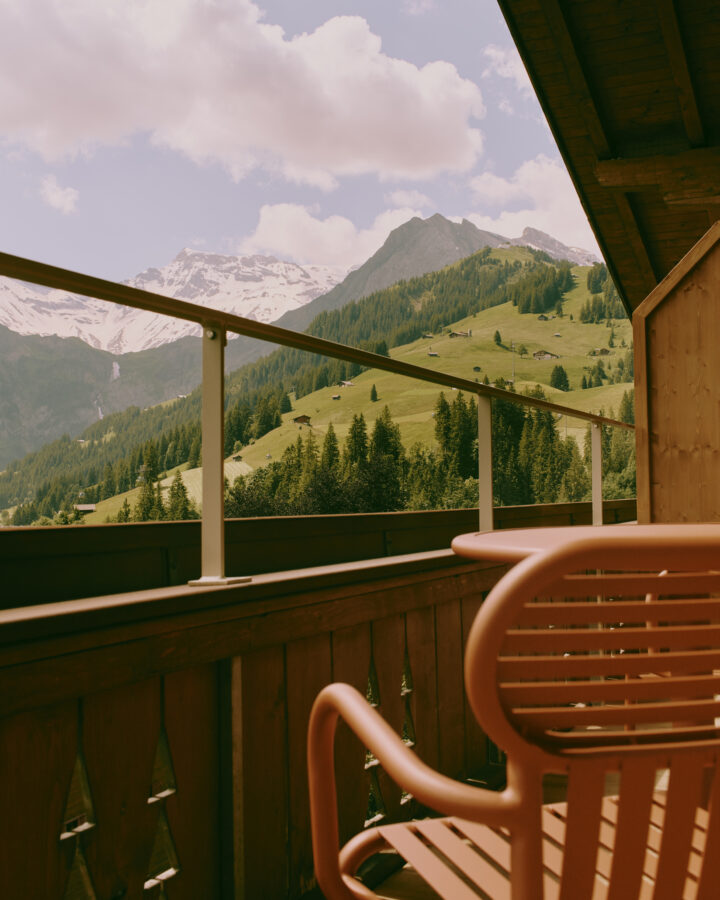
Photography by Michael Sinclair
Housed in a chalet-style building dating back to 1914, the building was previously known as The Waldhaus, or ‘forest house’, a favourite haunt for locals during the 1950s and 60s. Making the most of the large dimensions and wooden exterior, Maunder enlisted the help of Amsterdam-based interior design studio Nicemakers to perform a delicate intervention that would complement the traditional chalet aesthetic. Having retained much of the building’s original structure bar floor-to-ceiling windows that flood the sprawling 18 rooms with light and open up to terraces outside with panoramic views of the mountains, Nicemakers carefully restored the interiors, preserving existing texture where possible, while drawing on the hotel’s heyday in the 60s.
‘The journey to get to The Brecon is quite mysterious,’ recalls Lotti Lorenzetti, head of design and partner at Nicemakers, of her first site visit to the hotel. ‘I remember that feeling of these winding roads going up the mountain and arriving at this tiny village. Maunder gave us a tour of the building and showed us this incredible advertising booklet from the 70s, which was produced for the hotel, and it featured the most wonderful graphics and ski wear from that time,’ she continues.
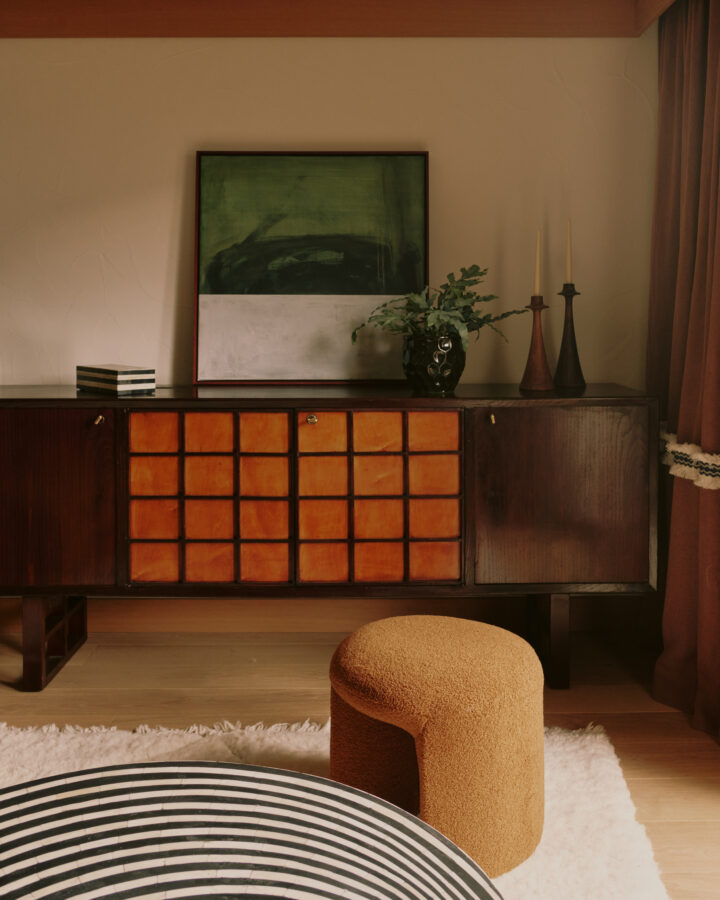
Photography by Michael Sinclair
‘For us, this was the 70s vibe that we wanted to recreate at The Brecon and this little booklet was our big inspiration.’ The meticulous renovation, which took almost three years to complete, sees original features and furniture restored to its former glory. Upon entry, a bespoke revolving door, inspired by a scene in The Return of the Pink Panther (1975), Maunder explains, opens to dining and living spaces, as well as an informal check-in area. Here, handmade plaster on the walls was redone and its grainy texture left exposed; in places, fragments of the old building can be seen, like the whole fireplace that was discovered unexpectedly in the hotel’s spa. In other areas, used chairs were stained and upholstered with new fabrics, and the flagstone outside and in the public areas was initially spotted three doors down from the main building.
‘For us, sustainability also comes from looking at the building and what’s good in it, and then trying to give it a new life, because a lot of these things unfortunately often just end up in a skip,’ says Lorenzetti. ‘Some of these materials and pieces we used had a connection to the buildings in the village, so we wanted to ground the design a bit more in its location.’
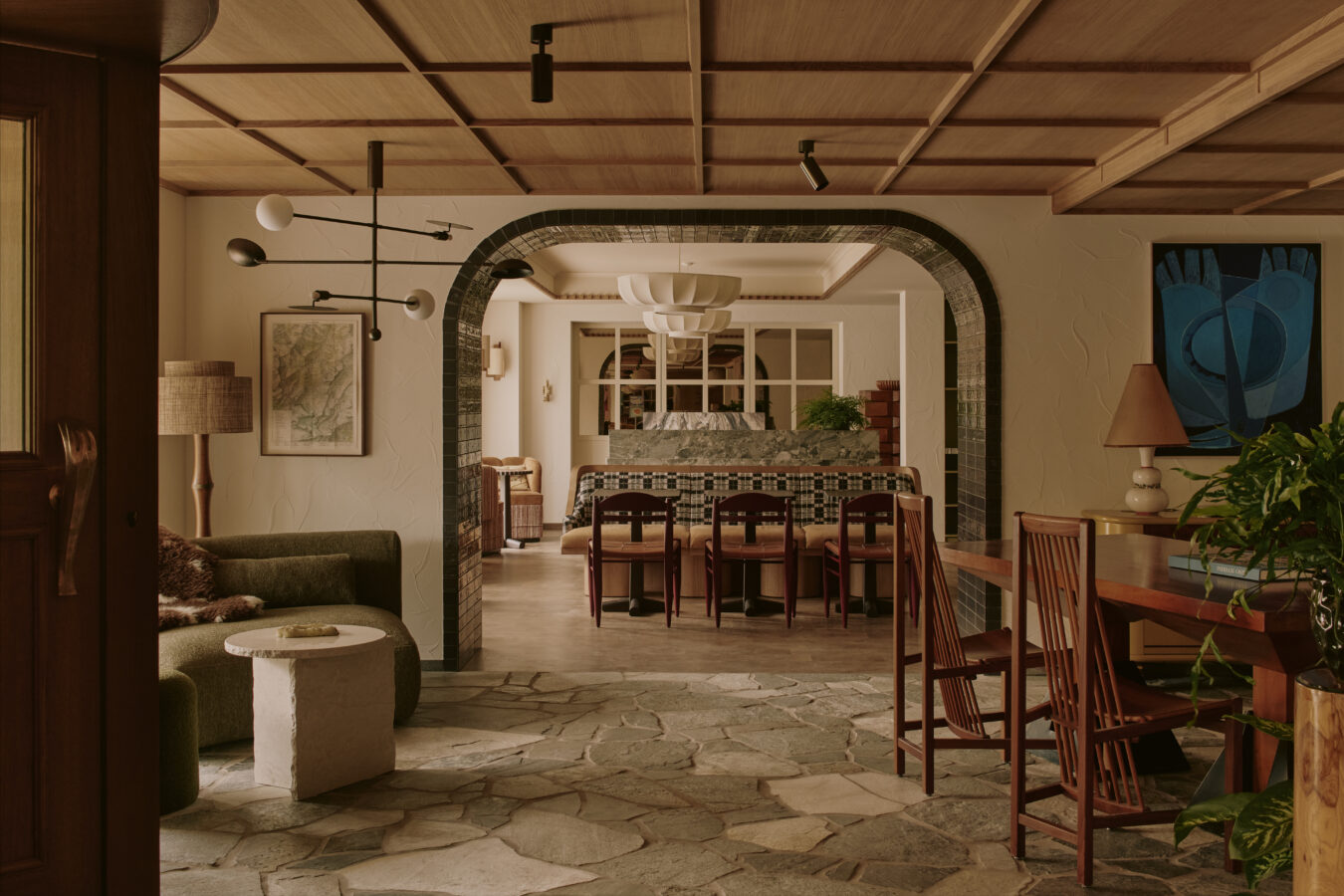
Photography by Michael Sinclair
Drawing on the 70s groove, Nicemakers incorporated a grounding colour palette and tactile finishes in both the public and private spaces, using rich tones like terracotta and warm browns, with a mix of layered textures and patterns that add warmth and earthiness. The free-spirited mood extends throughout The Brecon in the lobby, bedrooms and spa area, as the designers combined contemporary pieces with vintage finds and bespoke items to create an eclectic interior with history and personality.
Rooms feature locally made, handcrafted doors from Swiss craftspeople in Adelboden, plus custom design elements – including black zigzag tables – referencing the hotel’s mountain setting. The carpet in the corridors on the first floor is a custom design by Nicemakers and a modern take on Welsh graphics, while the woollen blankets in the bedrooms are woven in Wales and come courtesy of Pembrokeshire woollen mill Melin Tregwynt.

Photography by Michael Sinclair
But Nicemakers also sourced many of the smaller, decorative objects themselves by trawling across markets in Europe and searching through pages on Etsy and eBay to handpick each item, such as the art deco Adelboden poster in the lobby, or the brass handles the team found while wandering around a vintage shop in Amsterdam, which was later used for the main entrance of the revolving door.
‘With the location, we wanted to avoid those cliches and almost didn’t want the interior to feel very Swiss,’ says Lorenzetti. ‘We typically see a lot of minimalism here, so we aimed to create something that was completely the opposite. I don’t want to say curate because that’s such an over-used word, but ultimately it was about creating an atmosphere where visitors are fully absorbed in this mountain world,’ she continues. ‘There are no TVs in the bedrooms because we hope guests will have more of a connection with nature and human interaction with other people in the hotel; grab a book, sit next to someone else and engage in a conversation or go skiing and enjoy the views.’

Photography by Michael Sinclair
There is a comfortable, homely feel at The Brecon that’s hard to beat. Rooms have been thoughtfully designed and generously stocked with a complimentary mini bar – think organic Waterloo teas and Coaltown coffee – while the salmon-coloured seating by Petite Friture on the terraces invites visitors outside to take in the views. Bookshelves are filled with a selection by Amsterdam’s Bisou Gallery, and bathrooms are complete with Aesop amenities for a touch of everyday indulgence. ‘I do think that perhaps our Dutch influence was brought into the building in the homey atmosphere,’ explains Lorenzetti. ‘The lighting is low and dimmed, which is quite common in homes in Amsterdam or the Netherlands in general. Maybe we indirectly translated and brought some of that mood into the design aesthetic at The Brecon, or more so, the experience of it.’

Photography by Michael Sinclair
A similar cosiness settles over the open kitchen restaurant, where an in-house chef dishes up a modern take on Swiss and European classics such as wild mushroom risotto or roast Alpine salmon with crushed potatoes, all prepared using fresh, seasonal and local produce. With à la carte breakfast, afternoon tea and dinner all included in the visitors’ room rate, after a day in the mountains, guests can come back to an assortment of sandwiches, brownies and homemade cakes.
Plus, meals are served on handmade ceramic plates and cups which have been made by Maunder’s wife Andréa Anderson, who bought 500kg of clay to make each piece for the hotel by hand in her Welsh studio.

Photography by Michael Sinclair
‘There is a lot of personal life in this project,’ comments Lorenzetti. ‘I remember when we came for that first site visit, Maunder invited us to his home and made fresh truffle pasta,’ recalls Lorenzetti. ‘Being invited into someone’s home and them cooking for us, that sort of really set the scene for the project and how it evolved,’ she shares.
Beyond the house, curated experiences immerse guests in the best of the Alps, from snowshoeing and ice climbing to tranquil hikes, skiing and stargazing. Every detail is designed to help visitors escape, unwind and feel at home, offering a welcome respite from the hustle and bustle of everyday life. ‘At The Brecon, everything is intentional,’ concludes Lorenzetti. ‘We are inviting people to go back to basics.’
This story appears in our latest ICON Magazine Issue 217
Get a curated collection of design and architecture news in your inbox by signing up to our ICON Weekly newsletter

